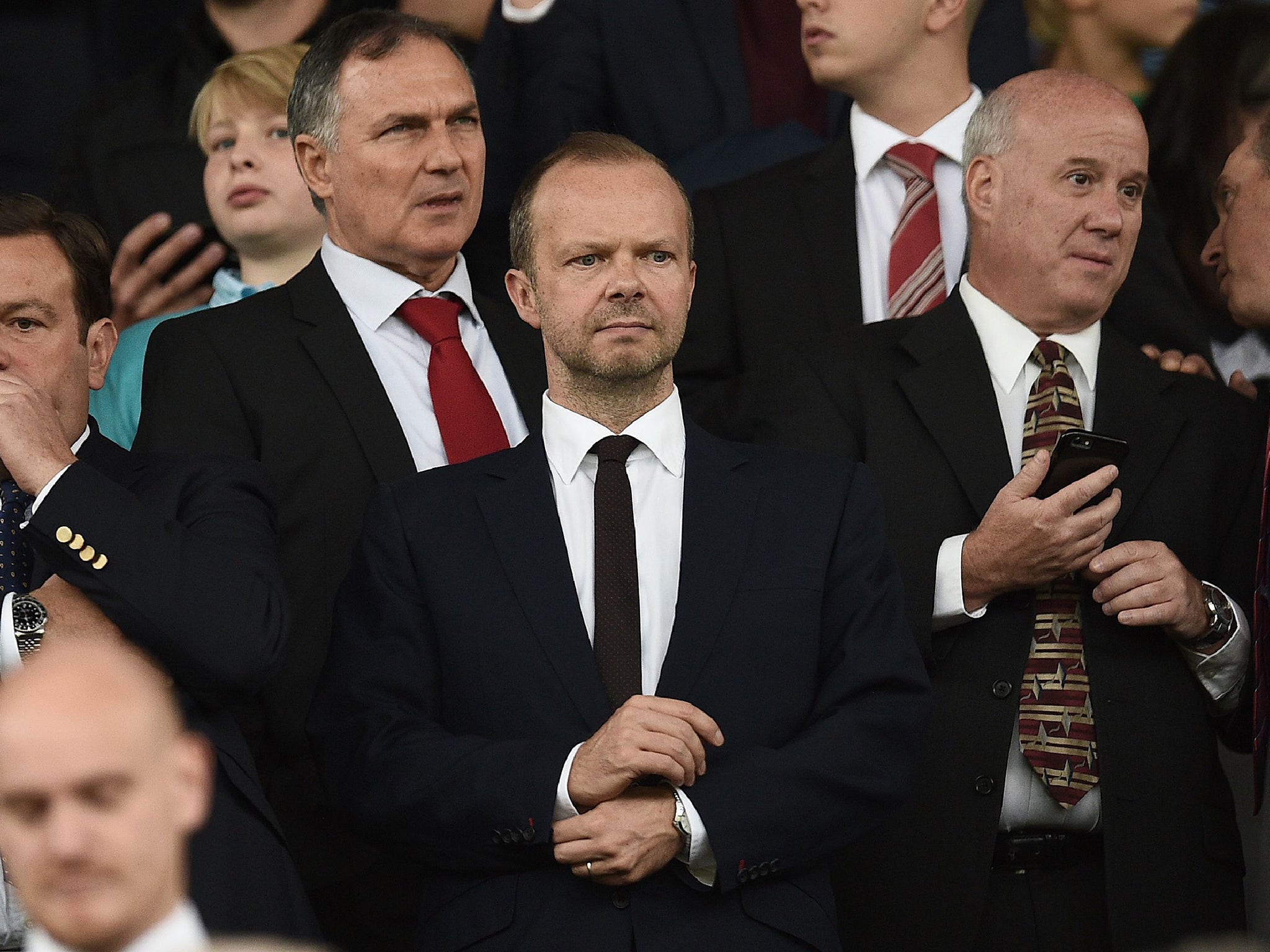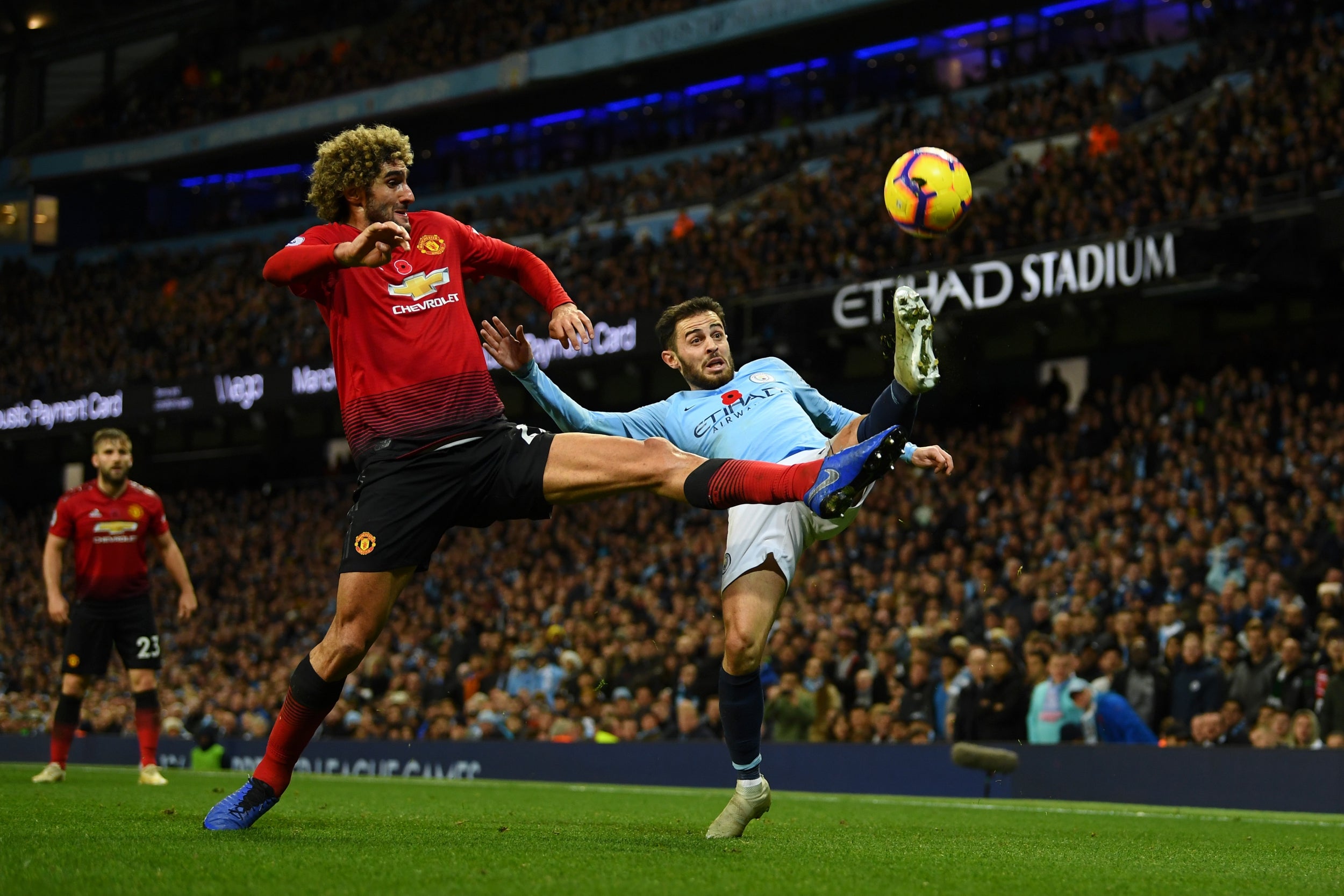Manchester United’s attack-filled squad at odds with Jose Mourinho’s style that leaves many to blame
It is unfair to say that United’s struggles this season are entirely Mourinho’s fault but it’s clear to see why his job and status as a manager has been in trouble of late

Your support helps us to tell the story
From reproductive rights to climate change to Big Tech, The Independent is on the ground when the story is developing. Whether it's investigating the financials of Elon Musk's pro-Trump PAC or producing our latest documentary, 'The A Word', which shines a light on the American women fighting for reproductive rights, we know how important it is to parse out the facts from the messaging.
At such a critical moment in US history, we need reporters on the ground. Your donation allows us to keep sending journalists to speak to both sides of the story.
The Independent is trusted by Americans across the entire political spectrum. And unlike many other quality news outlets, we choose not to lock Americans out of our reporting and analysis with paywalls. We believe quality journalism should be available to everyone, paid for by those who can afford it.
Your support makes all the difference.This time, at least, Jose Mourinho didn’t blame the quality of his players.
The Portuguese had been asked whether yet another chastening derby defeat had proved he needed a quality centre-half, as he had argued in the summer. Unlike after the home defeat by Juventus, though, he did not make any unfavourable comparisons about Victor Lindelof and Chris Smalling.
“I don’t think today was the game to touch on that point. Victor and Chris had a positive performance,” the Manchester United boss argued.
It was a game that highlighted a wider point, though, that the centre-half issue is part of.
It actually cuts to the core of why Mourinho’s entire reign at United has felt unsatisfactory and underperforming, and why they are so far behind Manchester City in so many senses.
A primary issue is that, in such games, the Portuguese’s inherent inclination – his scorpion-and-frog nature – it to sit deep and keep things tight. That is something that would obviously be aided by having a rock-hard resolute centre-half of the type that Mourinho has always idealised. Without that, and the injured Paul Pogba, he instead went for a three-man midfield of Marouane Fellaini, Nemanja Matic and Ander Herrera that was supposed to be obstructive but ended up more like just lining up the non-moving monoliths from 2001 Space Odyssey. City just played around United, who only ever looked good in the brief spells when the game opened out for them a bit.
That has of course been the case for the last month, and that points to a huge problem with this team.
The top-heavy attacker-filled United squad is just not built to suit Mourinho’s preferred approach. It suits adventure and attack and risk and chaos, characteristics that have never really enthused the Portuguese.
That is likely one strong reason why the side’s performances have swung so wildly within individual matches, and point to a fundamental confusion within the squad. That maybe makes it logically inevitable that the clarity that comes from having to chase a game – the fundamental requirement of just scoring – actually brings their best performances. It enforces an idea, where previously there was none.

Mourinho is thereby caught between two mindsets: his own, and that which seems to more naturally suit his players.
There is thereby a fundamental confusion at the core of United.
They are team without a clear idea, something that is actually amazing to say after two and a half years and five transfer windows.
It is also so strikingly different from most of Mourinho’s managerial career, given he has previously been a manager famed for his laser focus, particularly during his peak at Internazionale.

The only focus at United right now seems to be when they are chasing a game in the last few minutes and Fellaini is thrown on to fire balls at, something Mourinho lamented he couldn’t do… because he had to start the Belgian.
“We had to play Fellaini, he was not ready to play for 90 minutes,” the Portuguese rather remarkably said. “I can imagine when the result was 2-1 to bring a fresh Fellaini, I think they would be in big, big trouble.”
This obviously emphasises one reason why Mourinho’s job and very status as a manager has been in trouble of late, given it emphasises the fundamental poverty of ideas at a time when there has never been so much attacking sophistication at the top level of the game.
It is impossible not to wonder whether, as much as not having any ideas at United, he is actually out of ideas.
But it’s equally impossible, and unfair, to say it’s entirely down to him. The lack of a core football idea reflects the way the club has operated since the retirement of Sir Alex Ferguson, and is why executive vice-chairman Ed Woodward has now realised the requirement for proper football expertise between the manager and the hierarchy.
Compare that to City. Pep Guardiola came into a job that effectively had been shaped for him. Everything around the football side of the club had been built towards a clear idea, with Guardiola the idealised choice for the top role.
Mourinho came into a job that was pretty much a response to City. United were organisationally in such a disarray that they had to go for the manager with the biggest reputation, who also had a reputation for getting results off Guardiola.

That was the extent of the thinking, and it has not evolved much since.
It is why there is a lot of blame to go around at United, but the problem is articulated by the dilemma Mourinho has in how to set up the side. It means confusion reigns.
Join our commenting forum
Join thought-provoking conversations, follow other Independent readers and see their replies
Comments